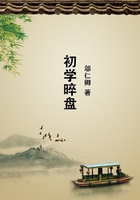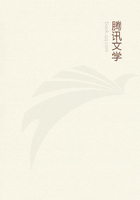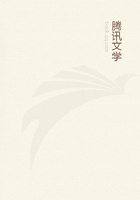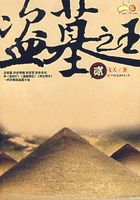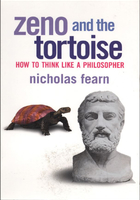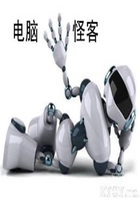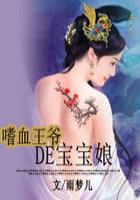There must be such a naturally attached 'medium' as flesh, for no living body could be constructed of air or water; it must be something solid. Consequently it must be composed of earth along with these, which is just what flesh and its analogue in animals which have no true flesh tend to be. Hence of necessity the medium through which are transmitted the manifoldly contrasted tactual qualities must be a body naturally attached to the organism. That they are manifold is clear when we consider touching with the tongue; we apprehend at the tongue all tangible qualities as well as flavour. Suppose all the rest of our flesh was, like the tongue, sensitive to flavour, we should have identified the sense of taste and the sense of touch; what saves us from this identification is the fact that touch and taste are not always found together in the same part of the body. The following problem might be raised. Let us assume that every body has depth, i.e. has three dimensions, and that if two bodies have a third body between them they cannot be in contact with one another; let us remember that what is liquid is a body and must be or contain water, and that if two bodies touch one another under water, their touching surfaces cannot be dry, but must have water between, viz. the water which wets their bounding surfaces; from all this it follows that in water two bodies cannot be in contact with one another. The same holds of two bodies in air-air being to bodies in air precisely what water is to bodies in water-but the facts are not so evident to our observation, because we live in air, just as animals that live in water would not notice that the things which touch one another in water have wet surfaces. The problem, then, is: does the perception of all objects of sense take place in the same way, or does it not, e.g. taste and touch requiring contact (as they are commonly thought to do), while all other senses perceive over a distance? The distinction is unsound; we perceive what is hard or soft, as well as the objects of hearing, sight, and smell, through a 'medium', only that the latter are perceived over a greater distance than the former; that is why the facts escape our notice. For we do perceive everything through a medium; but in these cases the fact escapes us. Yet, to repeat what we said before, if the medium for touch were a membrane separating us from the object without our observing its existence, we should be relatively to it in the same condition as we are now to air or water in which we are immersed; in their case we fancy we can touch objects, nothing coming in between us and them. But there remains this difference between what can be touched and what can be seen or can sound; in the latter two cases we perceive because the medium produces a certain effect upon us, whereas in the perception of objects of touch we are affected not by but along with the medium; it is as if a man were struck through his shield, where the shock is not first given to the shield and passed on to the man, but the concussion of both is simultaneous.
In general, flesh and the tongue are related to the real organs of touch and taste, as air and water are to those of sight, hearing, and smell. Hence in neither the one case nor the other can there be any perception of an object if it is placed immediately upon the organ, e.g. if a white object is placed on the surface of the eye.
This again shows that what has the power of perceiving the tangible is seated inside. Only so would there be a complete analogy with all the other senses. In their case if you place the object on the organ it is not perceived, here if you place it on the flesh it is perceived; therefore flesh is not the organ but the medium of touch.
What can be touched are distinctive qualities of body as body; by such differences I mean those which characterize the elements, viz, hot cold, dry moist, of which we have spoken earlier in our treatise on the elements. The organ for the perception of these is that of touch-that part of the body in which primarily the sense of touch resides. This is that part which is potentially such as its object is actually: for all sense-perception is a process of being so affected; so that that which makes something such as it itself actually is makes the other such because the other is already potentially such. That is why when an object of touch is equally hot and cold or hard and soft we cannot perceive; what we perceive must have a degree of the sensible quality lying beyond the neutral point. This implies that the sense itself is a 'mean' between any two opposite qualities which determine the field of that sense. It is to this that it owes its power of discerning the objects in that field. What is 'in the middle' is fitted to discern; relatively to either extreme it can put itself in the place of the other. As what is to perceive both white and black must, to begin with, be actually neither but potentially either (and so with all the other sense-organs), so the organ of touch must be neither hot nor cold.
Further, as in a sense sight had for its object both what was visible and what was invisible (and there was a parallel truth about all the other senses discussed), so touch has for its object both what is tangible and what is intangible. Here by 'intangible' is meant (a) what like air possesses some quality of tangible things in a very slight degree and (b) what possesses it in an excessive degree, as destructive things do.
We have now given an outline account of each of the several senses.

